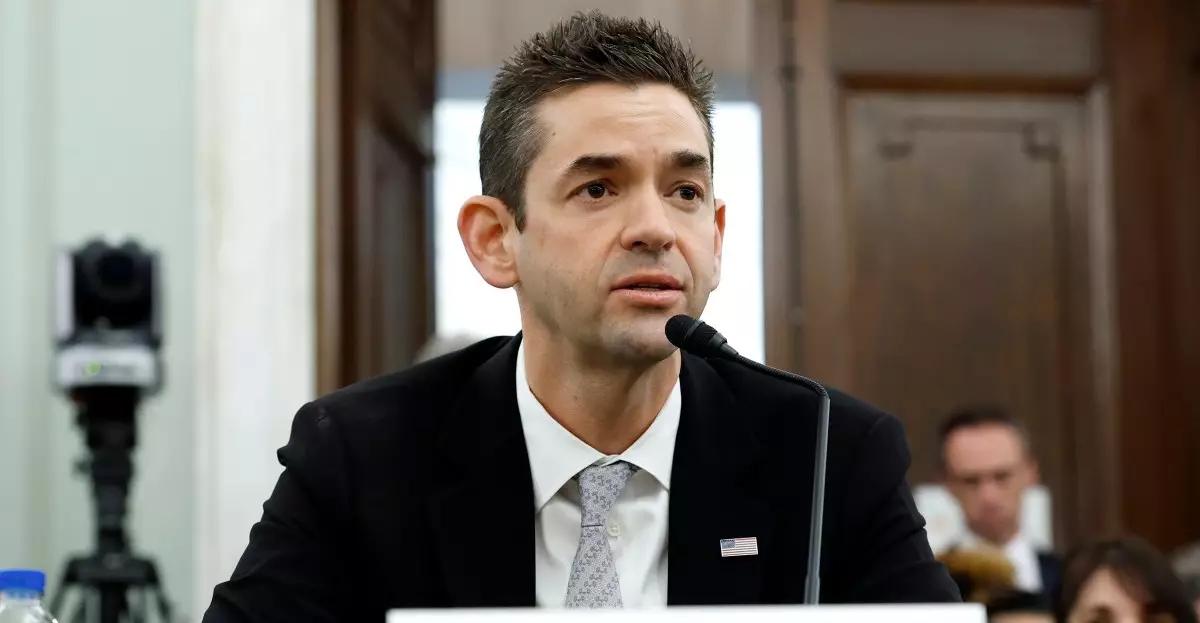Just when the excitement around space exploration is reaching new heights, a shocking political maneuver has thrown a wrench into the machinery of NASA leadership. Jared Isaacman, the billionaire entrepreneur known for his high-profile space ventures, had been poised to take the helm as NASA Administrator. However, his nomination has been withdrawn, primarily due to his previous financial contributions to Democratic political candidates. This unexpected turn raises critical questions about the influence of political affiliations on appointments in crucial governmental agencies, especially in an era where collaborative efforts in science and technology are more essential than ever.
The Role of Political Influence
The withdrawal of Isaacman’s nomination points to a troubling trend in political appointments where loyalty to party lines overshadows professional qualifications. Reportedly, Donald Trump himself decided to pull the plug on Isaacman’s nomination after learning of his donations to prominent Democrats, including Senator Mark Kelly from Arizona. This incident exemplifies a growing problem in American politics where political affiliations rather than expertise can dictate the future of critical organizations like NASA. Are we moving toward a model where only those who align perfectly with the ruling party can lead pivotal initiatives? This could severely undermine the qualifications and contributions of individuals who possess the vision and capability to drive innovation forward.
A Loss for NASA and Space Exploration
Isaacman’s experience in the space sector is not limited to his philanthropic-like ventures. He is the founder of Shift4, a payment processing company, and has actively engaged in space tourism, notably flying on SpaceX missions like Inspiration4 and Polaris Dawn. His withdrawal from consideration leaves a significant gap in leadership at NASA, especially at a time when ambitious projects and research are desperately needing direction. The recent proposed budget cut from $24.8 billion to $18.8 billion—essentially a decrease in funding for scientific exploration by nearly half—signals a broader danger to NASA’s ongoing mission.
This stagnation could result in the United States ceding its leadership in space exploration, a sphere that transcends political boundaries and encompasses the global community’s aspirations and potentials. The Planetary Society has already called this budget rationale an “extinction-level event” for NASA’s scientific endeavors.
The Immediate Future of NASA Leadership
White House spokesperson Liz Huston emphasized the importance of alignment with Trump’s America First agenda in finding a new nominee, further illustrating the political landscape’s grip on NASA’s future. As the administration prepares to announce Isaacman’s replacement, the opportunity exists to choose a leader with impeccable credentials in aerospace science and management rather than one who simply aligns with a partisan agenda.
If the goal is to stimulate innovation and maintain the U.S.’s competitive edge in space technology, it’s imperative that NASA’s leadership is chosen based on meritocracy and visionary thinking, not fogged by political biases.
In these tumultuous times, NASA cannot afford to operate in “going-out-of-business” mode, as one ex-leader aptly described the current climate. The stakes are too high, and the world is watching.

